
Sportovní klub Slavia Praha – fotbal, commonly known as Slavia Praha or Slavia Prague, is a Czech professional football club in Prague. Founded in 1892, they are the second most successful club in the Czech Republic since its independence in 1993.
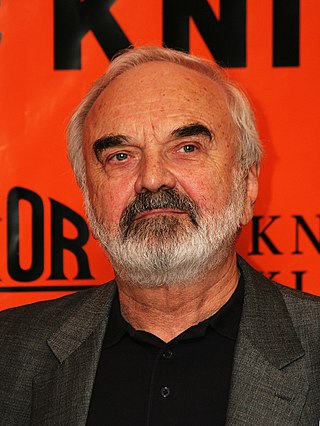
Zdeněk Svěrák is a Czech actor, humorist, playwright and scriptwriter, and one of the most well-known and popular Czech cultural personalities. Since 1968 he has appeared in 32 films.

Erazim Kohák was a Czech philosopher and writer. His early education was in Prague. After communists took over Czechoslovakia in 1948, his family escaped to the United States. He died in February 2020 at the age of 86.

Jan Sokol was a Czech philosopher, dissident, politician and translator. He briefly served as Minister of Education, Youth and Sports in 1998 under Prime Minister Josef Tošovský. From 1990 to 1992, he was Member of Parliament for Prague. From 2000 to 2007, he served as the first dean of the Faculty of Humanities at Charles University in Prague. Sokol ran for President of the Czech Republic in the 2003 election but lost to Václav Klaus.
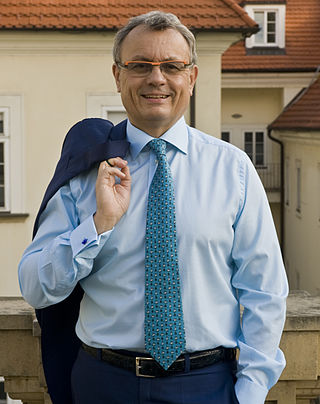
Vladimír Dlouhý is a Czech economist and politician.

Martin Potůček is Czech academic and journalist.

Ludvík Kundera was a Czech writer, translator, poet, playwright, editor and literary historian. He was a notable exponent of Czech avant-garde literature and a prolific translator of German authors. In 2007, he received the Medal of Merit for service to the Republic. In 2009, he was awarded the Jaroslav Seifert Award, presented by the Charter 77 Foundation. Kundera was a cousin of Czech-French writer Milan Kundera and nephew of the pianist and musicologist also named Ludvík Kundera.

Ladislav Žák was a Czech architect, painter, architectural theorist and teacher. He was an important exponent of the Czech functionalist architecture in the 1930s, later he devoted himself mainly to landscape architecture. In his theoretical works, he laid the foundations of the Czech landscape ecology.
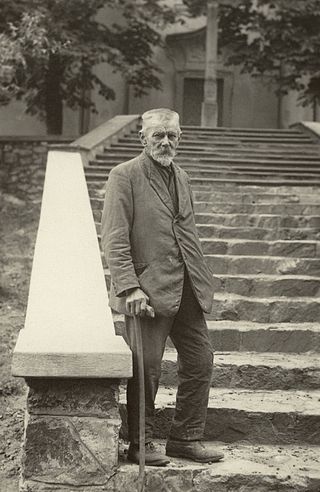
Josef Bosáček was a Czech painter and classical graffiti artist.
Viola Fischerová was a Czech poet, and translator.

Jan Lipšanský is a Czech journalist, screenplay writer, writer and stage director.
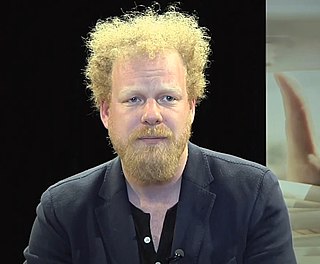
Tomas Sedlacek gained widespread international recognition for his book on philosophy and economy "Economics of Good and Evil", which has been translated into 22 languages. Sedlacek has advised former Czech President Vaclav Havel, and has lectured at the World Economic Forum and around the world. For 16 years, he was a Chief Macroeconomic Strategist at the largest Czech bank, and has been a longstanding member of Czech National Economic Council. Tomáš Sedláček is also the author of the English-language podcast CzechMate.
Zora Wolfová was a Czech translator and publishing editor. Her early translations are credited under her maiden surname, Bartošová.

Miroslav Tyrš was a Czech philosopher, art historian, sports organizer and together with Jindřich Fügner the cofounder of the Sokol movement.
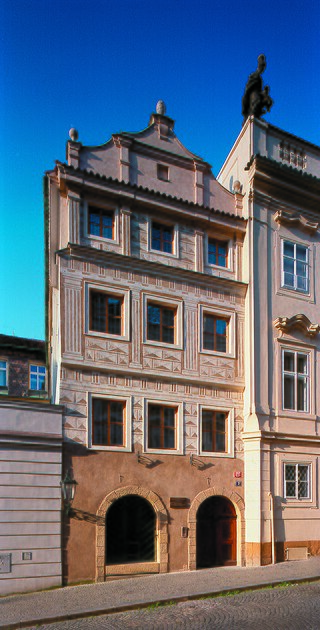
The Institute of International Relations Prague (IIR) is a public research institution that produces basic and applied scientific research in the field of international relations. Dr. Mats Braun is the director of the IIR. The founder of the IIR is the Ministry of Foreign Affairs of the Czech Republic (MFA). The activities of the IIR are financed from the government budget for science, research, and innovation of the Czech Republic, on the basis of horizontal cooperation with the Ministry of Foreign Affairs of the Czech Republic, from domestic and international projects, and by sales of its publications. The IIR carries out independent research in the public interest.

The National Partnership was the only authorized political party in the Protectorate of Bohemia and Moravia. Membership was mandatory for all Czech male full-aged citizens of the Protectorate.
Rudolf Rabl was a Bohemian-born Austrian-Czech lawyer, writer, art collector, and member of the Czechoslovak government-in-exile, 1940-45.
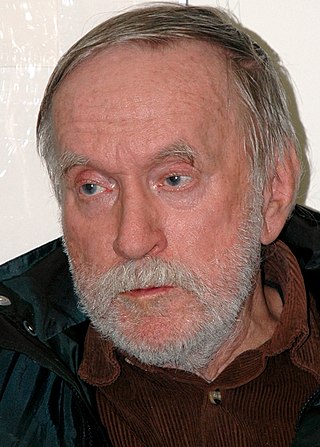
Zbyšek Sion is a Czech painter and printmaker, a co-founder of Czech structural abstraction art. His later works were mostly imaginative and illusionistic paintings, often on general warning theme or bearing a strong political symbolism.
Jan Gaspar Dooms was a Flemish draftsman and copperplate engraver active in Prague.
Karel Svolinský was a Czech painter, graphic artist, illustrator, typographer, typeface designer, theatre stage designer and university professor.















